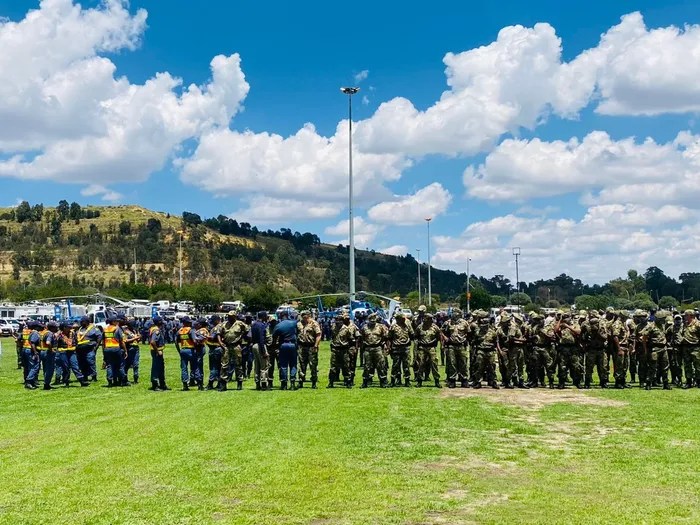SAPS deploys hundreds of new constables ahead of G20: Here’s why it matters

Over 3,500 constables to be deployed ahead of G20.
Image: Simon Majadibodu
Over 3,500 newly trained police constables will be deployed across South Africa as part of heightened security measures for the G20 Leaders’ Summit.
Lt-Gen Tebello Mosikili, co-chair of the National Joint Operational and Intelligence Structure (NATJOINTS), said Operation Shanela, the ongoing national high-density policing programme, will continue alongside G20 deployments.
The summit will be held at the Nasrec Expo Centre this weekend.
“Operation Shanela is continuing. We adopted and implemented it in May 2023, and it is still in operation. The question will be with the same capacity that we are implementing,” she said.
“I already spoke to the provincial commissioner of Gauteng, (Lt-Gen Tommy Mthobeni), and all my colleagues across South Africa. We are going to maintain our policing strategy in the form of Operation Shanela to ensure that we continuously make necessary deployments as required.”
Operation Shanela, a nationwide crime-prevention initiative, helps identify patterns and potential threats. It targets serious and violent crimes through stop-and-search operations, roadblocks, vehicle checkpoints and high-visibility patrols in all nine provinces.
Mosikili said the newly trained constables would join integrated deployments conducting roadblocks, checkpoints, patrols and rapid-response duties throughout the summit.
“What will be different is that, for this event, we plan according to its magnitude. This coming Friday, we will be receiving more than 3,500 newly trained police constables who will be deployed across the country,” she said.
“In Gauteng, the provincial commissioner will receive more than 1,000 new recruits, who will be deployed to different areas,” she added.
On specialised courts, Mosikili said measures would be in place to ensure the swift processing of cases involving international visitors.
“Not necessarily courts specially designed as we did for BRICS or the 2010 World Cup, but we are deploying the same strategies to ensure that cases during this period are prioritised and redirected to courts that can give them the attention they deserve,” she said.
“This is done so that visitors are not kept in the country unnecessarily. Their cases will be processed so that by the time they leave, justice will have been served.”
Mosikili said NATJOINTS is fully prepared for the summit, warning that anyone challenging security measures “will face the full might of the law.”
A soft lockdown has already been implemented around the Nasrec precinct. Mosikili said a hard lockdown will be enforced from Friday, November 21, to Monday, November 24.
“We confirm that from Friday, November 21, up until Monday, November 24, 2025, we will implement a hard lockdown in the vicinity of the FNB Stadium, which houses the accreditation centre, as well as the Nasrec Expo Conference Centre hosting dignitaries and delegates,” she said.
The security plan incorporates intelligence gathering, analysis and coordination to detect and prevent criminality; proactive measures including high-visibility policing in hotspot areas; a combat approach using uniformed and specialised units with SANDF support; reactive policing through detection and case management; and an information-sharing component led by GCIS, DIRCO and SAPS to keep communities informed.
simon.majadibodu@iol.co.za
IOL News